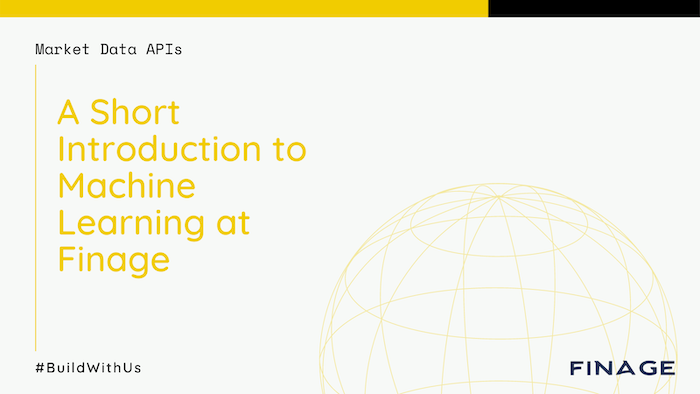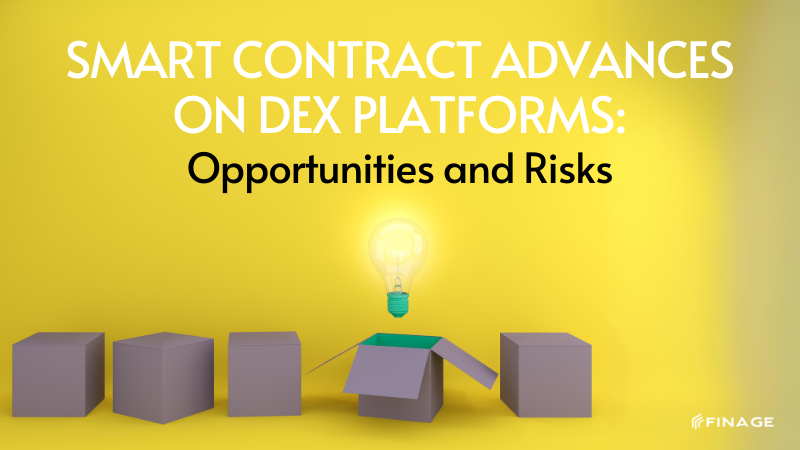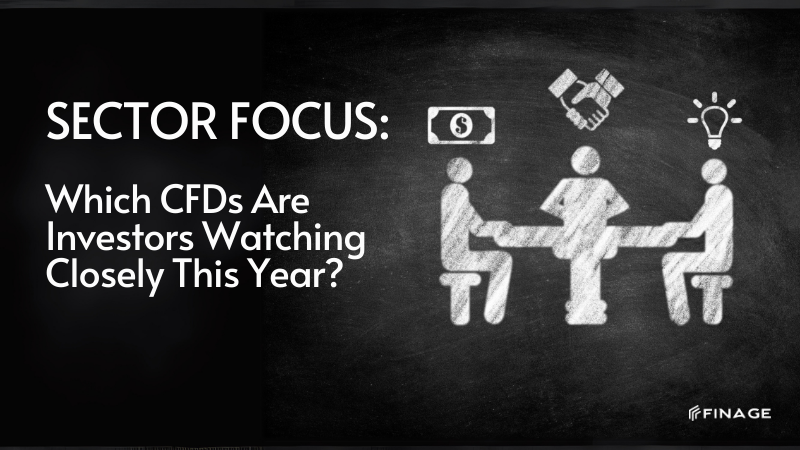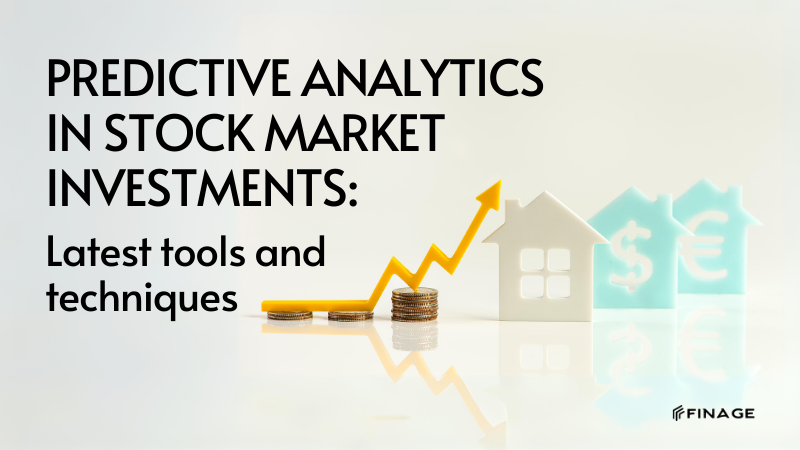Back to Blog
by Finage at June 29, 2021 4 MIN READ
Real-Time Data

A Short Introduction to Machine Learning at Finage
Table of Contents
- A Short Introduction to Machine Learning at Finage
- What is machine learning?
- What types of machine learning are out there?
- Unsupervised Learning
- Supervised Learning
- Reinforcement Learning
- Representation Learning
- How does Finage use machine learning?
If you're wondering how Finage automates high-quality financial data, you should read this blog post carefully. We will explain to you the secret step by step. The secret here is machine learning. In this blog post, we will provide you with useful information on what machine learning is and how it can be used to analyze and interpret financial information, and how to use Finage to improve your financial data experience.
What is machine learning?
Machine learning is a term given to a set of techniques for detecting patterns. Most of these techniques are not new to data science and analysis. Grouping anything can be considered a good technique. We now have the computational power to develop old-school theories and apply them to solve real-world problems. Therefore, it is our duty to update these theories according to today's technology.
What types of machine learning are out there?
We should begin with seeing what kind of questions it aims to answer in an initial introduction to machine learning. There are multiple ways to access information with machine learning. Almost all machine learning projects follow the following categories.
Unsupervised Learning
Unsupervised learning is made when the computer application sees a dataset and has a try to group things together using some sort of distance measure. In unsupervised learning, there is no chance to control the assignment to groups. Only information can be provided by the group. Various methods can be tried and the results are checked to see if they are meaningful enough to be understood.
Supervised Learning
Supervised learning occurs when the application is given a set of examples and tries to classify new data according to the classifications. For instance, if you want the app to identify dog breeds, you can add pictures of pugs or similar dogs, each tagged with the correct breed of dog. So, the application will learn the correct coding. Let's consider you want to classify financial statements into industry classes or reported line items into standardized line items. The main idea with this process is that classifications need instances. There is no supervised training if you do not provide labeled examples.
Reinforcement Learning
If we explain reinforcement learning clearly for you, we can summarize it as follows. Reinforcement learning is an educational approach in which practice tries to teach procedures or strategies to solve a problem and then learns to apply them to a new situation. In fact, this involves the computer learning how to do something.
In other words, we can say that it is a dynamic approach to reinforcement learning. This is finding the best way in the process of doing something. We can exemplify this situation with a game. For instance, think about the tic-tac-toe game we all know. This app should solve the question of "Where is the best place to put the next X?".
Reinforcement learning is one of the primary techniques used to train "self-driving" cars. In the field of commercial information processing, it is not yet widely applied like supervised learning or representative learning.
Representation Learning
Let's talk about representational learning. Here the application is given a set of information to extract specific subjects, insights, and comments from the source. Representation learning or feature learning is the name given to a set of techniques that allow a system to automatically discover the representations required for feature detection or classification from raw data. Most of the recent developments in machine learning, and particularly in the areas of Computer Vision and Natural Language Processing, are based on this technique.
It has some similarities with unsupervised learning. Because you provide all the data and the application tries to understand the gist of it. However, in representational learning, it is the practice that extracts features from a dataset rather than being presented with a dataset. Face detection is an instance of representative learning that the app extracts distinguishing features from images. In the field of financial information analysis, it is used representative learning to respond the questions about companies or support line item classifications. But just like humans, different apps can interpret the same data in different ways. How the app finds its representations is a mystery.
How does Finage use machine learning?
Finage uses supervised learning for our core products. When we give an instance about this subject, we plan reported line items from financial statements to standard templates. This is a classification problem. Companies report line items using multiple different concepts, making it impossible to confront data accurately. At this point, we take the reported line items and classify them into a set of concepts to simplify fundamental analysis. We are aware that certain elements are properties of a particular expression. For example, assets, liabilities, and equity are always on the balance sheet. One of the fields of machine learning research at Finage is knowing how to best use representational learning of concept metadata to improve our standardization process.
Do you want to learn more about how Finage uses machine learning to generate higher quality data streams faster and at competitive prices? Your answer will probably be 'yes' at this point. If we agree with you and you want to move yourself and your company forward, think through what we said. Stay tuned to our blog posts where you will find much more useful information for you. If you want the best for you, contact us now.
We hope that this blog post will be beneficial for you. We will continue to create useful works in order to get inspired by everyone. We are sure that we will achieve splendid things altogether. Keep on following for more.
You can start building your own Machine Learning App with Finage free Market Data API key.
Build with us today!
Featured Posts

Blockchain Innovations: How They’re Reshaping Cryptocurrency Markets
April 26, 2024

Smart Contract Advances on DEX Platforms: Opportunities and Risks
April 25, 2024

Sector Focus: Which CFDs Are Investors Watching Closely This Year?
April 24, 2024

What's New at Finage: Latest Features and Services for 2024
April 23, 2024

Predictive Analytics in Stock Market Investments: Latest Tools and Techniques
April 22, 2024
Categories
Forex
Finage Updates
Stocks
Real-Time Data
Finage News
Crypto
ETFs
Indices
Technical Guides
Financial Statements
Excel Plugin
Web3
Tags
A Short Introduction to Machine Learning
What is machine learning
What types of machine learning are out there
Unsupervised Learning
Supervised Learning
Reinforcement Learning
Representation Learning
How does Finage use machine learning
Join Us
You can test all data feeds today!
Start Free Trial

If you need more information about data feeds, feel free to ask our team.
Request Consultation
Back to Blog
Please note that all data provided under Finage and on this website, including the prices displayed on the ticker and charts pages, are not necessarily real-time or accurate. They are strictly intended for informational purposes and should not be relied upon for investing or trading decisions. Redistribution of the information displayed on or provided by Finage is strictly prohibited. Please be aware that the data types offered are not sourced directly or indirectly from any exchanges, but rather from over-the-counter, peer-to-peer, and market makers. Therefore, the prices may not be accurate and could differ from the actual market prices. We want to emphasize that we are not liable for any trading or investing losses that you may incur. By using the data, charts, or any related information, you accept all responsibility for any risks involved. Finage will not accept any liability for losses or damages arising from the use of our data or related services. By accessing our website or using our services, all users/visitors are deemed to have accepted these conditions.